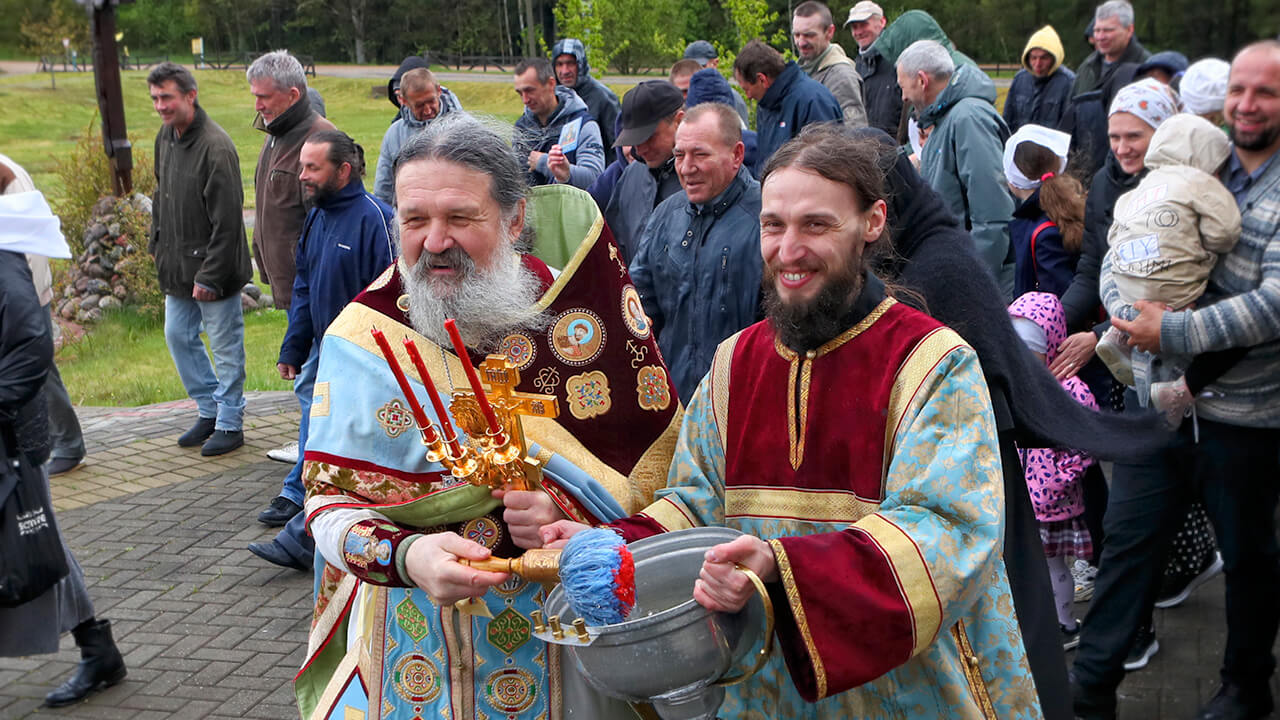
We all want to grow in the spirit, and the quality of our spiritual life is a good measure of our progress. Whether we have good spiritual lives is easy to find out. Consider this example. A known ascetic and hermit comes to a monastery. The Hegumen meets him at the gate and throws a bone to his feet. The hermit descends on all fours like a dog and picks it up. Can you imagine the hermit's state of mind? He understands immediately: "I am the last one here. I am picking up this bone because the Hegumen threw it." By taking it, he admits his sinfulness and shows repentance. By today's standards, this seems insane. When one monk at our Convent called another brother a vagrant, he objected, "Don’t you dare to call me a vagrant! I am your brother". Notice the difference.
'How is this kind of dignity different from self-abuse?' you might wonder. True dignity is to live in God and His Spirit. With no God or Spirit within, what kind of dignity could we have?
Many centuries ago, there lived a Holy Martyr named Barbaros. He was a former robber who became a saint. He felt a touch of the Holy Grace and understood how guilty he was. When they sent him to live with the swine and cattle, he said: I am not worthy to walk on my two feet like a man. I will crawl on all fours because I am no better than an animal. This way, he was restoring his dignity. He succeeded and became a saint. When it was revealed to him that he was forgiven, he continued walking on all fours as the admission of his sins. That was his way of being a saint.
What kind of dignity did the despicable Publican have? What did he say to go home more justified than the Pharisee? Only this: "Lord, have mercy on me, a sinner". How did that compare to the dignity of the Pharisee who prayed: "I am not like other people—robbers, evildoers, adulterers—or even like this tax collector."
In most cases, we know the truth about our dignity but are too afraid to say it. Instead, we say to ourselves, reassuringly, "I am doing okay." "I have been smoking and swearing less. I am doing fine, I have not been sinning much. What do I do next?" I often get to hear these kinds of confession from the brothers at our farmstead. To this, I respond, "I do not doubt your innocence for a moment, but still let us still say to God: 'forgive me'". I have been having the same conversation for many decades. It is all about dignity. Am I still hopeful? Yes. One day, maybe a decade or two later, something might click in their hearts, and they will recognise their sins and wrongs. They will see God. They cannot do so now because of their inflated self-righteousness and misguided dignity.
Now let us think of Christ. Can you imagine what kind of dignity He had? He, the Creator and Giver of life approaches Saint John and asks him to be baptised. Saint John is shocked: "You are the Creator, and you are asking that I baptise you like a common sinner?" Now, how does that fit our notion of human dignity? Or, when he came out, flogged and beaten in the flesh before the Jews, and Pontius Pilate said: “Here is the man!” How dignified was He?
Christianity turns upside down our understanding of this life. This is exactly why Christians were misunderstood by the Pagans. They are still misunderstood in the modern world, which is made up of hierarchies. When someone in a family follows God's example, he is treated as if he were insane. "He must be sick! What is he doing? He is supposed to be taking, but he is giving. He is supposed to fight for his dignity. But what is he doing?" Change happens from within when we realise that we can no longer continue as before because our picture of the world is false. We must be born again. I wish that all of us could do that - be born again with a new idea of dignity and beauty.